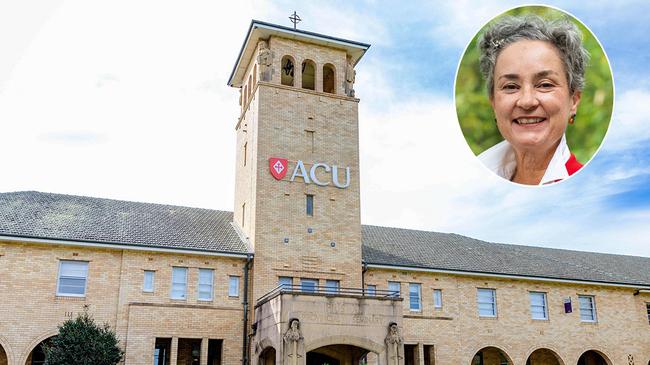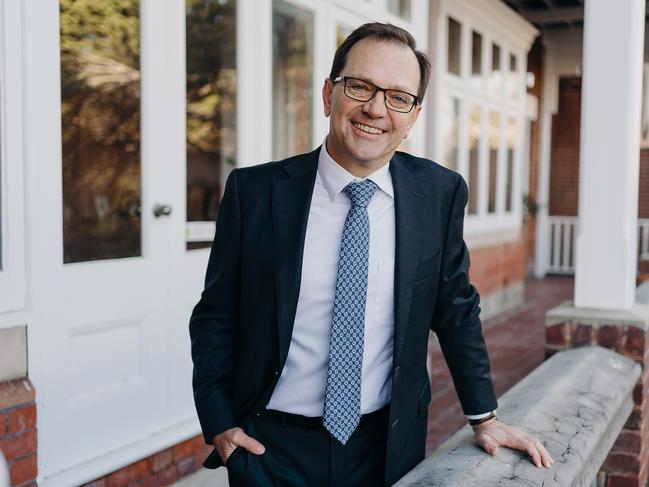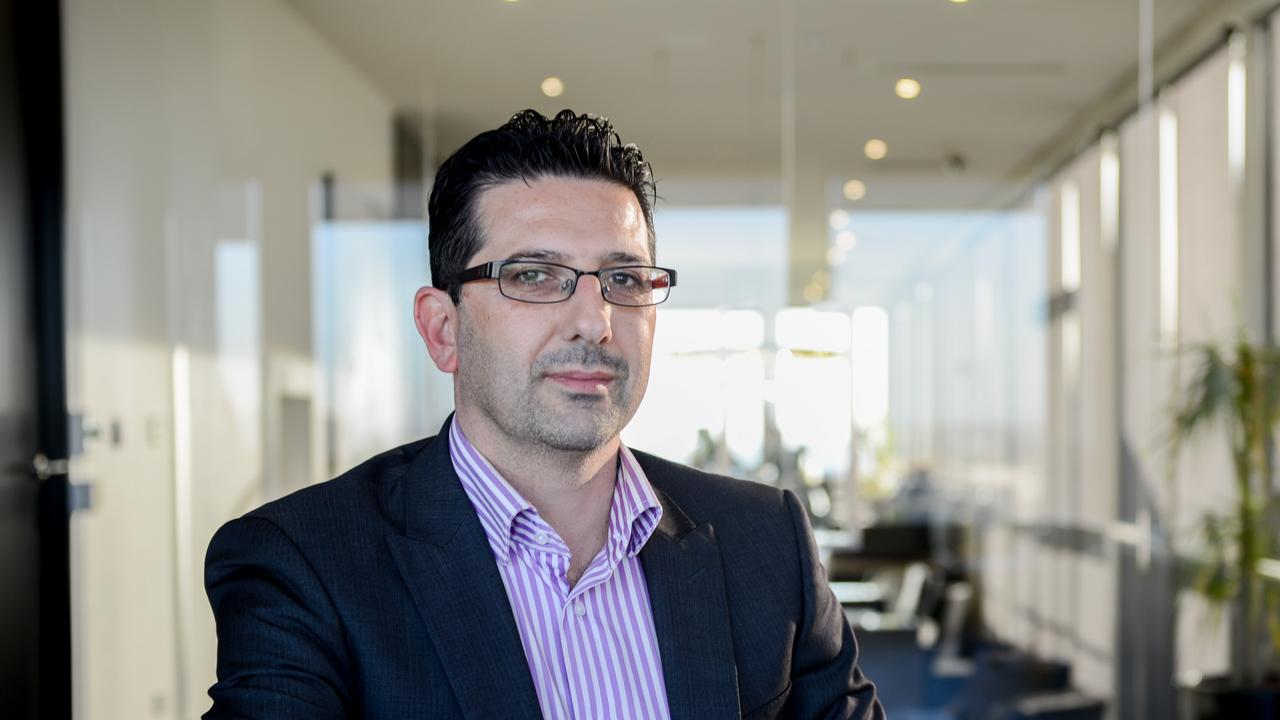
For a real-time view of an academic leader scrambling to save his job, look no further than the vice-chancellor of the Australian Catholic University, Zlatko Skrbis, who spent much of Thursday drafting letters to staff and overseers, assuring them all of his outstanding directorship.
And, of course, blaming the media for the crisis engulfing the institution.
“Many of you will no doubt have seen or heard about the series of articles that have been published in the business gossip column of The Australian recently,” he wrote to staff.
“The articles contain many errors of fact and misleading allegations and this has been extremely disappointing.”

In the parallel universe inhabited by Skrbis, a blame-shifter with a black-belt in self-preservation, the mere fact that ACU recorded a $35m deficit in 2023, that it keeps laying off dozens of staff, lost its chief operating officer, dropped significantly in the world university ranking index, and suffered a decline in student enrolments, is absolutely no reflection on his guidance of the institution.
“There is much to be proud of here and still so much more for us to achieve.”
Staff at ACU are nearing open revolt against Skrbis. The aforementioned blights would be enough to threaten the position of almost any self-respecting vice-chancellor in the land.
Where Skrbis genuinely finds himself on the endangered species list now is with the revelation this week, in this error-strewn and misleading column, that he facilitated a $1m payment to the Dean of Law, Professor Kate Galloway, to get rid of her just days into her appointment.
And then fabricated a story around it.
Skrbis told us through a spokeswoman on Tuesday that Galloway was never removed or dismissed from her role but instead just reassigned into an exciting new position as a “strategic professor”. “Professor Kate Galloway was not dismissed as Dean of Law.
“ While only in the role … for a short time, Professor Galloway quickly demonstrated her integrity and professionalism and this, combined with her proven research record, made her well placed to take up this new strategic role.”
Proven research record? We’ll come back to that in a minute. Within days of Galloway’s appointment, just as the university began trumpeting her arrival, Skrbis was unsheathing a pen and writing to the professor, seeking to tear up her contract.
“ACU wishes to explore with you the possibility of reaching a mutually acceptable agreement with you for the termination of that contract,” said the letter, written on January 20, and obtained by Margin Call.
“Please let me reaffirm how sorry I am that circumstances have arisen which have led to the very difficult discussions over the last few days.”
Galloway’s crime was her long-held view on abortion reform. She’d been selected by an ACU panel that skipped over the due diligence of her academic history, papers so freely available online that a Google search would have turned up her incompatibility with the conservative Catholic institution.
Paid the equivalent of four years’ salary to give up this prestigious position, she was rehired by ACU in a freshly created professorial role, with a new salary, in circumstances that remain entirely opaque. There’s no mention of this role on Galloway’s LinkedIn profile, and no mention of ACU either. According to LinkedIn she’s been working as a “consultant lawyer” in a freelance capacity since January. Whether she conducts any work for ACU at all is completely unclear, and it’s even possible, as some suspect, that she’s being paid merely to keep a title on the website.
The potential impingement of Galloway’s academic freedom, and the obscene misuse of taxpayer funds, at a time when scores of academics have been laid off from ACU, should alarm the national regulator, TEQSA, which has said nothing publicly on this matter.
And when he wasn’t writing to staff on Thursday, Skrbis was busy writing an emergency communication to Catholic bishops around the country, all of whom are seeking answers to these most recent revelations, and asking themselves serious questions about Skrbis, his leadership, and his credibility.
Election clue?
Western Australia opened its “embassy” in Canberra just a few months ago, sending the clearest signal yet of how much it values a presence and promotion of itself in the nation’s capital.
But the marquee event to exhibit WA and its wares has always been Showcase WA, organised by the Parliamentary Friendship Group of WA, and chaired by Senator Louise Pratt and Moore MP Ian Goodenough.
Don’t dismiss it as some poky gather-round, either. It’s held annually in Parliament House’s Great Hall and attracts serious sponsorship from Chevron, Perdaman, Woodside, and practically every wine producer in the Margaret Valley.
Now we hear some concerning news that this year’s event, slated for October-November, has been quietly canned for reasons that haven’t been specified. Something to do with Pratt’s impending retirement at the next election, as some have wondered? Or as others have suggested, could it be an indication of an impending clash with the federal election?
Lobbyist overlooked
The Sydney Morning Herald has spent the week on a deep-dive into the scurviness of the lobbying trade, the masthead’s chief political correspondent David Crowe peeking into the exorbitant spending on these external advisers and their unparalleled access to Labor leaders in Canberra.

So far three articles have been published, each a kind of ranking index of lobbying chieftains in the capital: Principle Advisory’s Ryan Liddell, Counsel House’s Claire March, Anacta’s Evan Moorhead, Hawker Britton’s Simon Banks, former Labor Ministers Stephen Conroy and Alan Griffin, former Liberal minister Christopher Pyne, Graham Richardson, Eamonn Fitzpatrick, David Quilty and several others.
But no mention just yet of anyone from Willard Public Affairs. Which is strange, because it’s got a decent client list and its principal is David Miles, husband of the SMH’s executive editor and publisher Tory Maguire, and very much a lobbyist on the attorney general’s federal register. A harmless oversight to not mention him, we’re sure.
Current clients include Woolworths, DHL, pharma-company Chiesi Australia and cloud-computing enterprise VM Ware. The list of previous clients is even longer.
It just seems odd that Miles hasn’t been name-checked yet, if for no other reason than to mention he tools around Canberra in a black Porsche Boxster.
The licence plate? BOX BOX.
Saving grace
Look, you can accuse lobbyists of a lot of things – but not all of them are missing a heart.
We made a bit of a deal last month of teal MP Monique Ryan being listed as a guest of CT Group at a National Press Club event. That minor detail only snapped us to attention because Ryan has spent her political career whanging on and on about the scourge of lobbying – and yet here she was, meeting in public with the CT crew, preparing to dine out on the devil’s dime.
We probed further and figured out that CT Group had actually been working pro-bono with Neuroblastoma Australia, and with Ryan, and they’d all been leaning on Health Minister Mark Butler to put aside money for DFMO, a drug therapy that improves survival rates in children with the disease.
Butler announced one-off funding this week of between $5m and $10m for free access to DFMO. Hospitals will be able to just go and buy it until manufacturer Norgin establishes its own compassionate access scheme. And from there the hope is that eventually the drug will receive a PBS listing.
So it’s not all Box Box antics in the capital after all.





